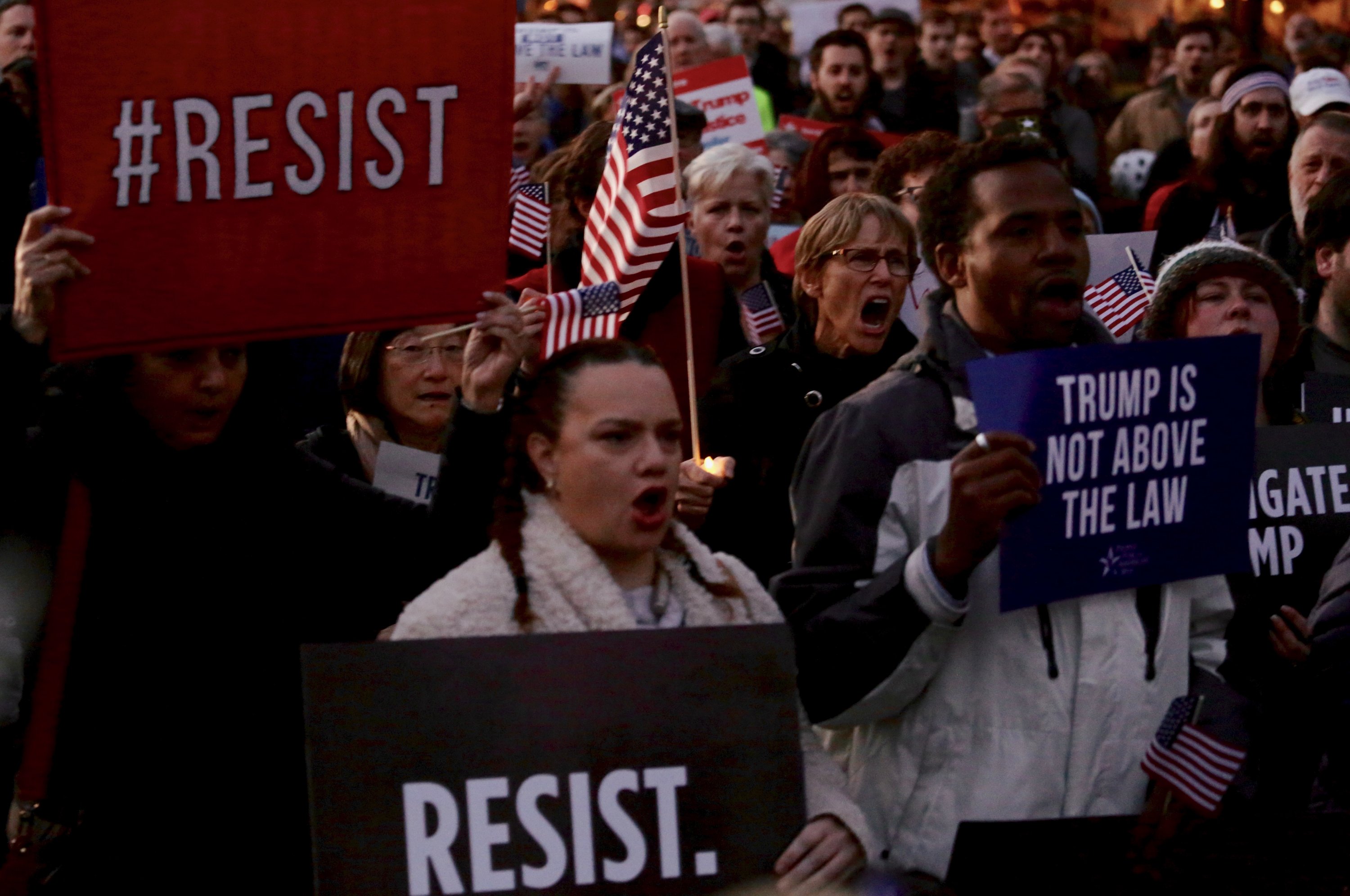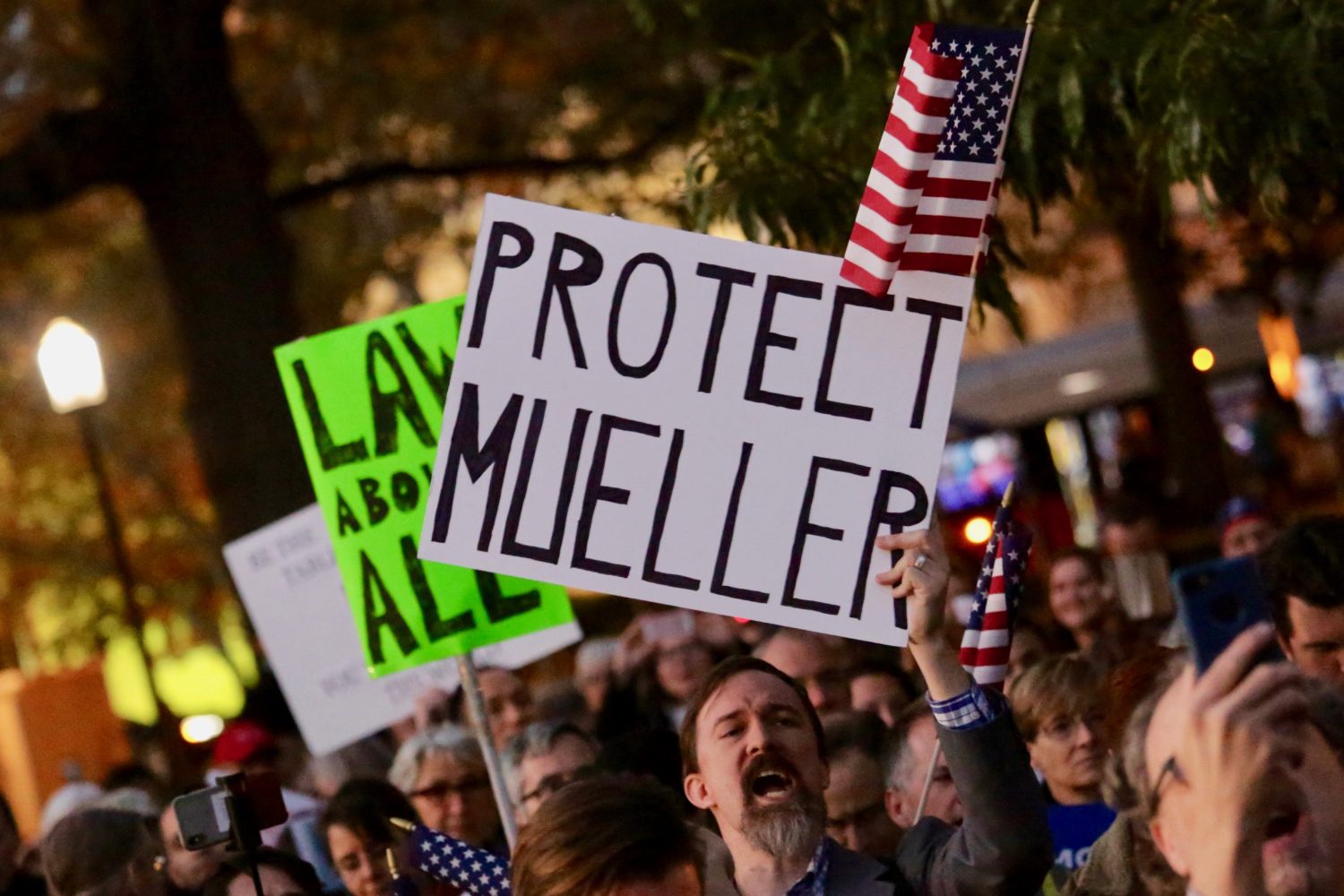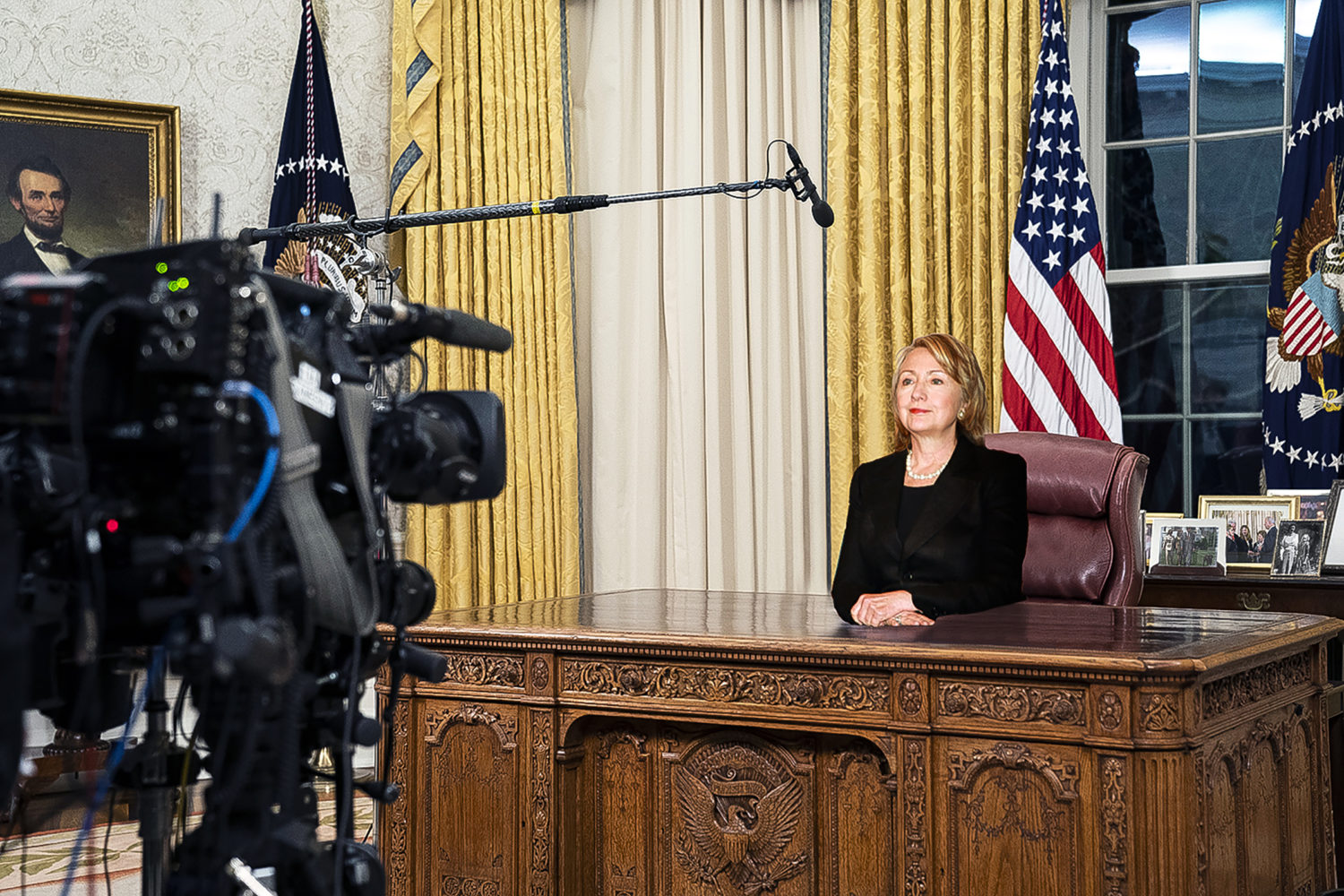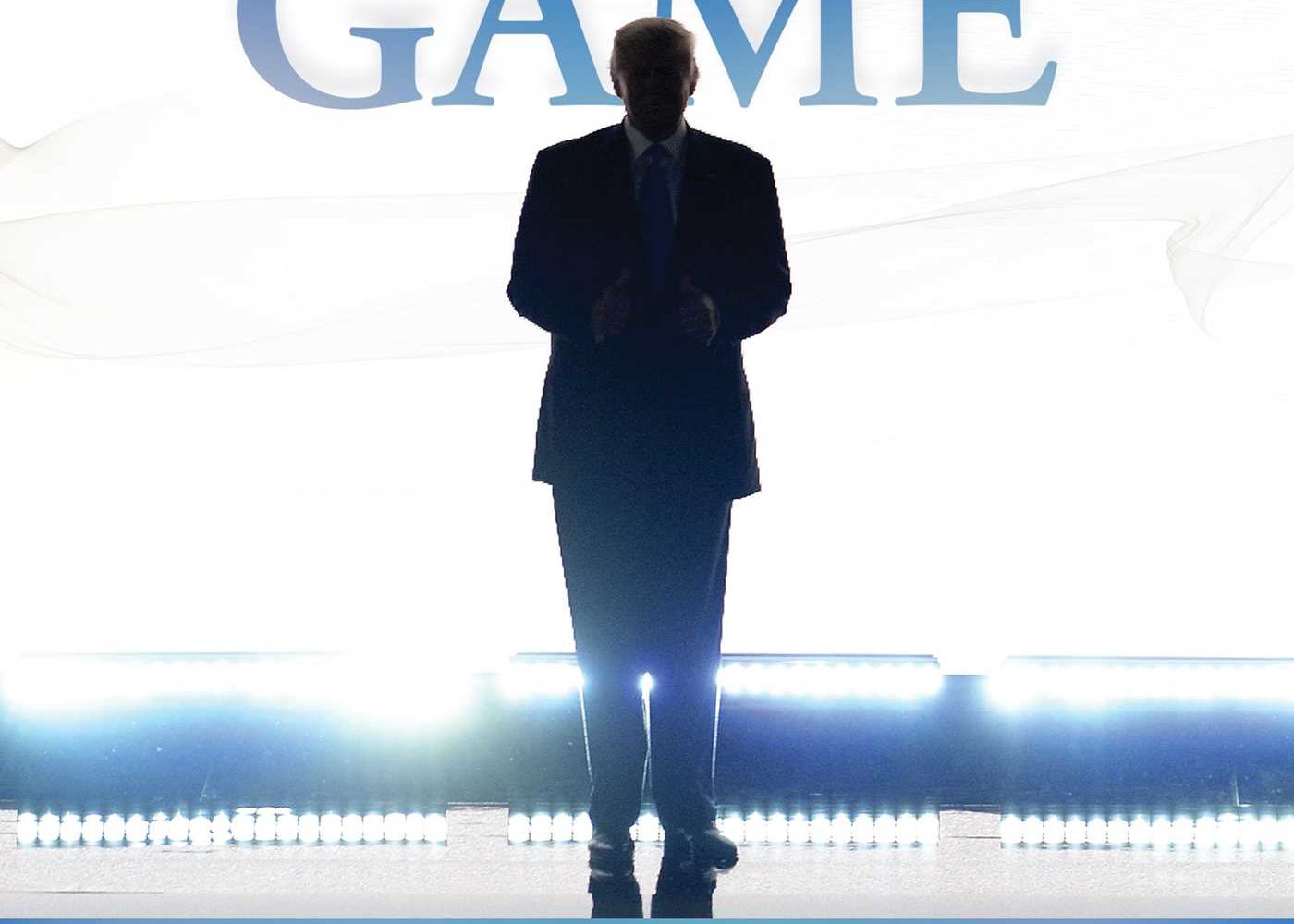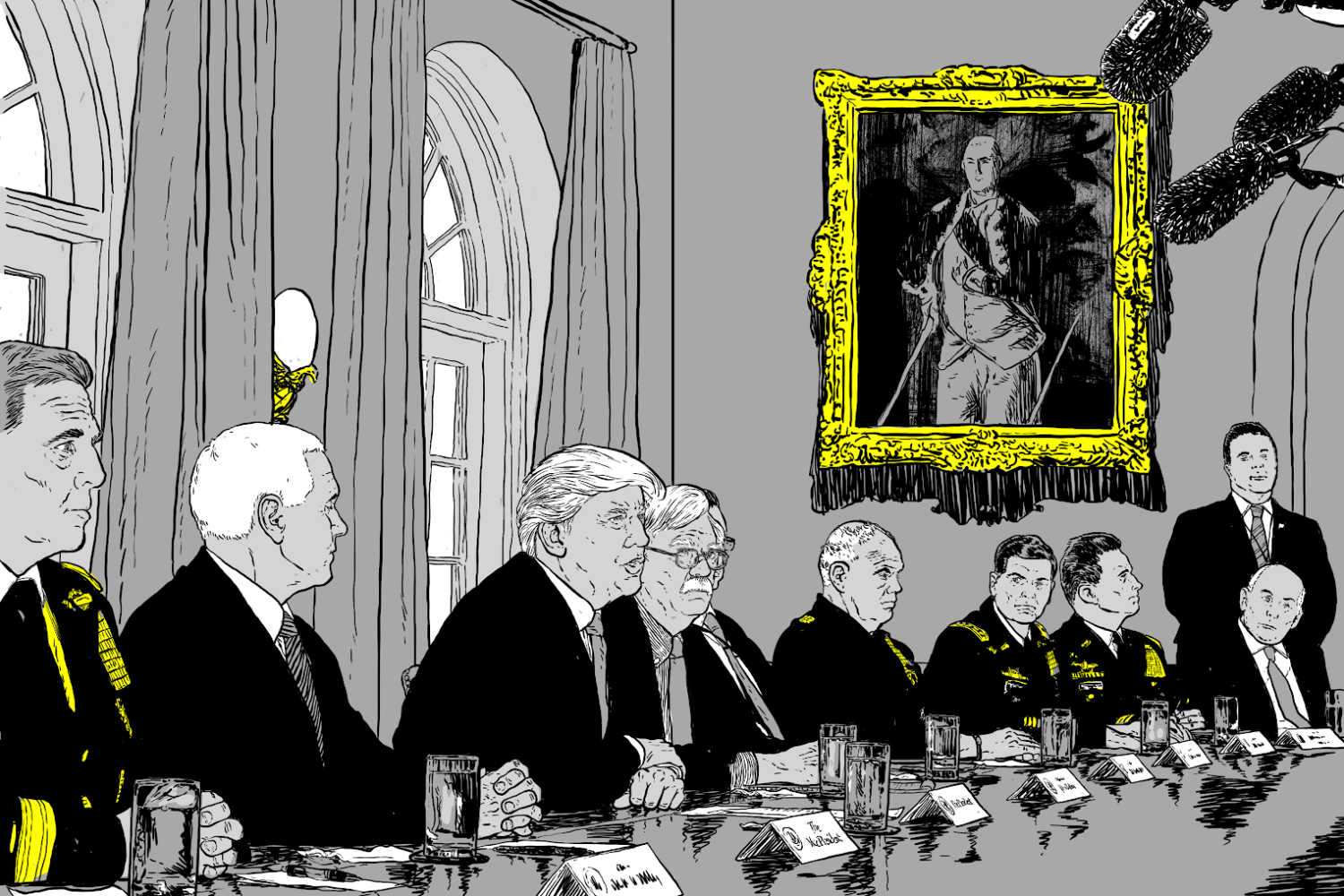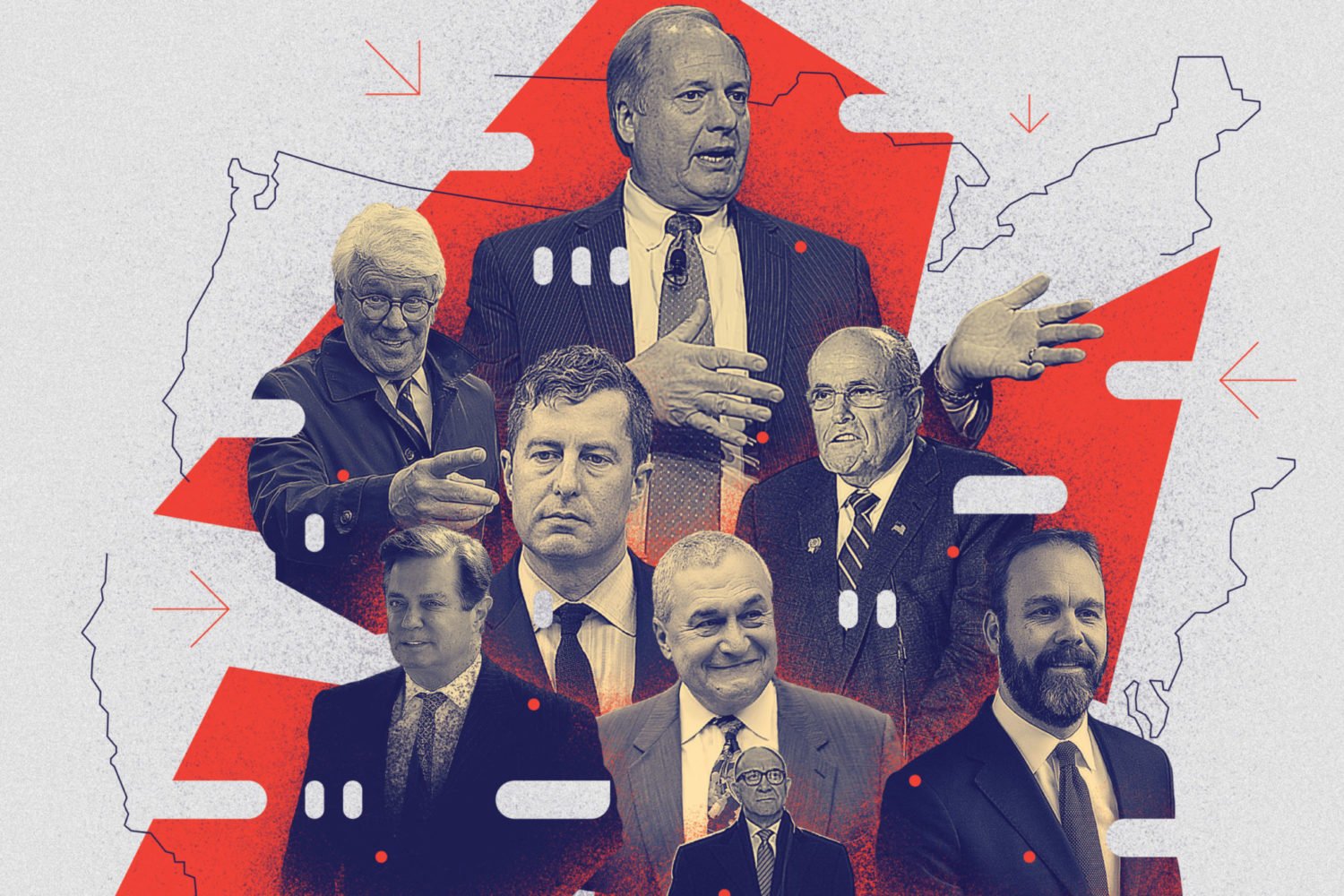One evening earlier this month, Secky Fascione, a longtime progressive organizer in Washington, invited Robert Mueller over for dinner. Fascione was playing host to a cozy gathering at her townhouse near Logan Circle, where she had set the table for journalists, activists, and government employees. “We hope to see you there,” the invitation read. Tucked into the roster of recipients was an email address that stood out from the others: the official Justice Department email, which someone claimed to possess, for Robert Swan Mueller III.
When it came time for dinner, the prank served its intended role as a playful prompt for the conversation topic that, during the past two years in Washington, has required no prompting whatsoever. For the duration of nearly two hours, the dinner discussion was a cantata of curiosity, wonderment, hopes, fears, and inexhaustible speculation over Mueller’s probe, sentiments that gushed forth like a reservoir undammed. When would he finish? How deep did the crimes go? It didn’t seem to occur to us, then or now, that the answers might be “soon”—and then, “not very.”
Even so, looking back on that evening, what struck me most about this room of liberal sympathizers—all college-educated, with hard-bitten wisdom earned in a city that dispenses such routine disappointment—was the reverential tone in which they unconsciously invoked a Republican bureaucrat whom they hardly knew; Bob Mueller may as well have been Elijah, the prophet for whom Jews reserve an empty chair and cup, whose coming symbolizes the answers to all the world’s remaining questions. At the conversation’s emotional apex, one dinner guest confessed he had been visited by Mueller in a dream. Recently, he’d had another vivid dream, in which Mueller’s report finally arrived; he spent the following day digging through his phone, frantically searching, until his wife suggested, meekly, that it might be his imagination.
At this, Fascione cackled with delight, along with her guests. In the uproarious laughter, someone spilled their wine.
That was then.
“It feels like yet another sucker punch, and in a long line of sucker punches,” Fascione told me this week, describing news that broke over the weekend, in which US Attorney General William Barr described Mueller’s report as not implicating the president in a clear-cut conspiracy. “There’s all these conflicting emotions. Was I a fool to be so hopeful that there was a ‘there’ there? That he was our guy, and this was our process? There’s self-doubt. It’s like grieving.”
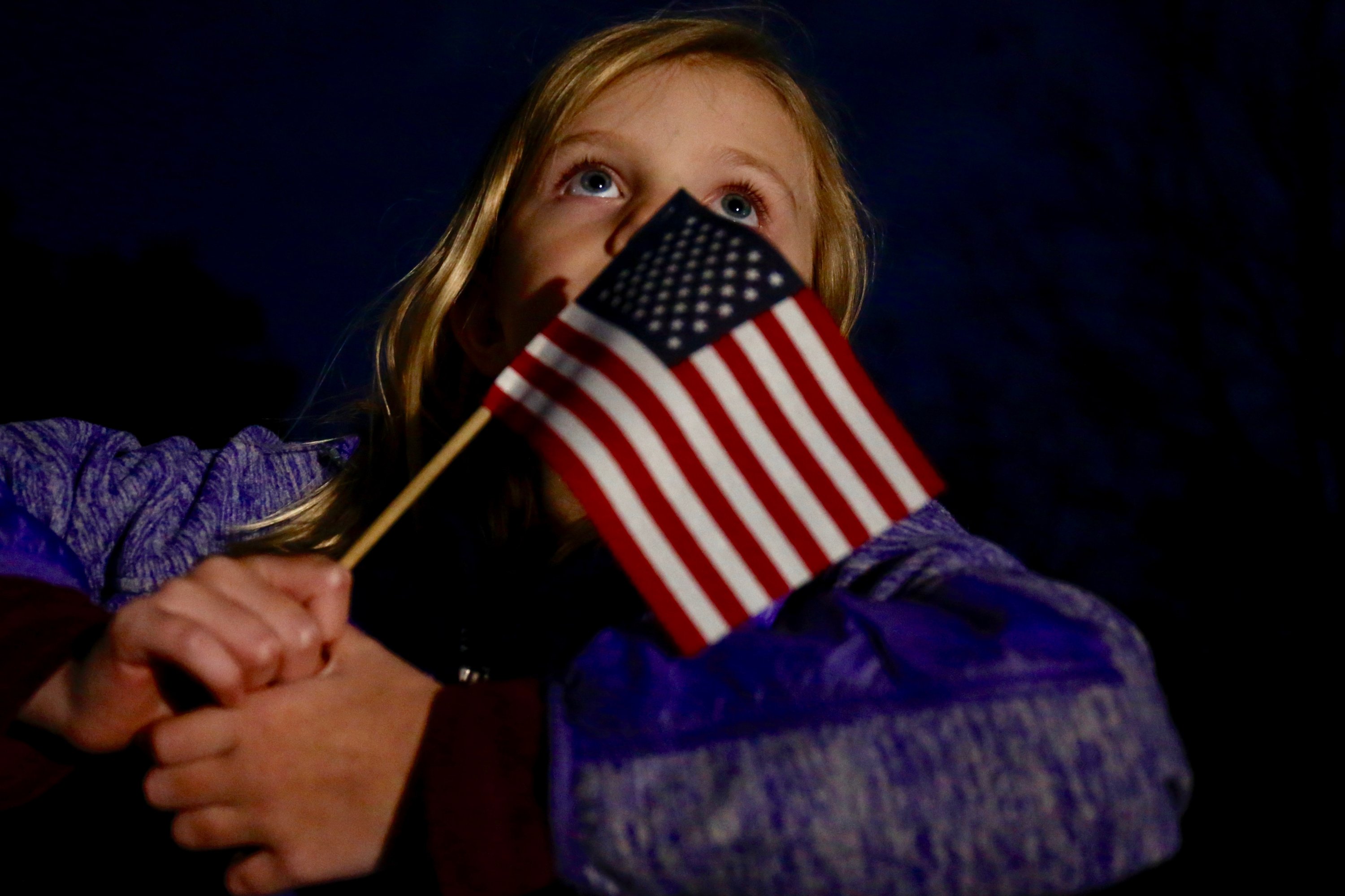
Of all the investigations in American political history, the probe led by Mueller was arguably the most culturally iconic. Mueller saw a second life as Robert De Niro on Saturday Night Live. He saw his likeness on T-shirts and beer mugs, purchased in the thousands by eager partisans (and, occasionally, credulous magazine writers). The probe became a cult perfectly suited to an era of permanent infotainment, a cultural cachet that would have seemed grossly out of place were it imposed on, say, Leon Jaworski, the special prosecutor of Watergate.
If Mueller’s probe had secured iconic status, its denouement has nearly matched it, if something can be iconic for its purported nothingness. “This is a complex, multi-layered tragedy,” Fascione, who has lived in Washington for nearly a decade, told me. “We are drowning so deeply, and everyone is putting their foot on the raft and sending us back under.” She added, “There’s kind of a frightening hopelessness.”
Though New Yorkers or San Franciscans may dispute the notion, it has long been true that residents of Washington—the country’s most liberal city by any measure—tend to internalize these developments more acutely than those anywhere else. The dejection and bitterness this week appeared to be equitably distributed across the sectors of political-village Washington: journalists, Hill staffers, tech workers—anyone who followed the probe with episodic zeal and was forced to endure the taste of ashes with a dignified equanimity, often imposed by their positions as servants of the public.
“We feel these things so acutely when they happen,” one senior Democratic staffer at a federal agency told me. Washington’s social code of enforced sangfroid—serving the city’s superseding illusion of being in control, and surprised by nothing—has piled on additional agony. “It’s kind of like a punch to the gut: ‘Let me just stand over you and put you in more pain,’” she said. “You can feel it in the city. It’s that people are a little depressed. There’s a downness.” Two political operatives described servers who were rude, strangers who were touchy, or friends who were argumentative on Sunday and Monday—symptoms, they suspected, of processing Mueller’s findings. (“Though it’s hard to tell–was it just an especially gloomy Monday?” one asked himself aloud.)
The closest situational match for an event that reverberated in Washington occurred twenty-eight months ago, with the election of Donald Trump. But where that experience conjured feelings of trauma—many compared the election to the death of a loved one—Washingtonians this week described the closing of Mueller’s probe in terms that invoked something closer to romantic disappointment.
“It’s like the breakup of a relationship you knew wasn’t going to work out—that you knew, deep down in your heart, that he wasn’t the one. But you were hoping that you would make it work anyway,” said one staffer at a Democratic party organization. Another Democrat, a senior federal appointee, described her confusion about the probe—whether to double-down on Mueller, or change focus, as some Democrats have suggested, to issues like healthcare—and likened the dilemma to moving on after a breakup. She wondered if calling Mueller to testify might simply invite more heartache. “It’s like, do I text my ex back?” she asked.
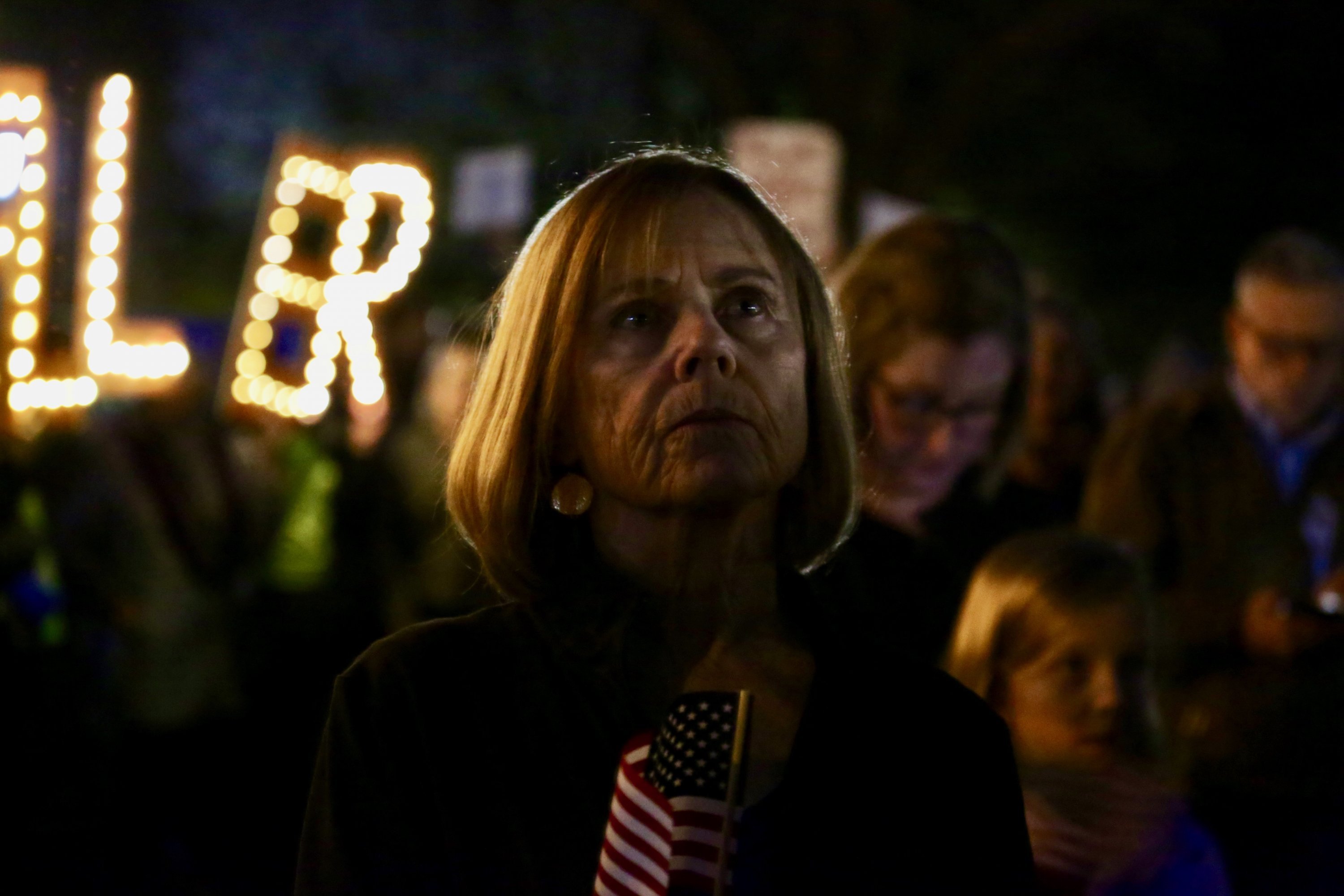
Elisabeth LaMotte, who runs a psychotherapy practice in DC, told me she’s “heard other people talking about sadness, disappointment, emptiness.” LaMotte suggested that, while these feelings don’t seem emblematic of a traumatic episode, they might correspond to the loss of a coping mechanism in the wake of a previous trauma. “Is it possible that, consciously or unconsciously, there’s some who latched onto this investigation as the next campaign? Something happening sooner than the 2020 election, and something there to latch onto?” she asked. “That’s how it’s more like a breakup psychology. When there is a loss of an important relationship, we consciously or unconsciously revisit other losses.”
We haven’t been dealt the blow of seeing Mueller’s report, but merely Barr’s truncated summary of it. Even so, LaMotte said, “There is a parallel of having imagined a certain outcome. It’s revisiting the trauma of the evening-of, and the day after” Trump’s victory.
For others, there was anger as well as gloom. “Depressed is a good word, I think,” said one reporter in one of Washington’s largest newsrooms. “The reason I feel depressed is that, actually, it feels like this is repeating what happened with the 2016 election.” The repetition she described, however, was an acute sense of loss punctuated by a media narrative obsessed with exonerating itself. She had turned her enmity inward on her own industry. “The press generally—this entire ecosystem—was saying that this was going to be a real bombshell. And potentially even take down the President.” She scoffed, as if at her own credulity. “I just don’t feel like there’s deep self-reflection about what went wrong.”
Others consoled themselves by pointing to Trump’s teflon-like tendency to shed accountability. “We wanted to treat it like a bomb. Even if it was, Trump can withstand so much,” one person in Washington’s nascent tech industry who campaigned for Hillary Clinton told me. “I wasn’t putting a whole lot of weight thinking this report was going to change whether or not he was going to stay in office.”
At the Tune Inn on Pennsylvania avenue, a senior Congressional staffer was nursing a lonely drink at the bar. “It’s like waking up from a hangover,” he said. “It was very easy for people to romanticize the whole thing.”
“If I had to capture the emotion and the feeling in one word, it’s this: Fatigued,” he went on. “Month after month, year after year, there was a lot of smoke.” He added, “It’s like watching your favorite soap opera, and the season finale lets you down. They roll the credits, and you’re like, ‘What?’ You want more. But nope. That’s it.”
But the staffer also dispensed hardboiled advice for those still nursing their wounds. “Maybe at the end of the day, it’s all going to be good for us. Maybe it takes a shock to the system. Would I have asked for this? No,” he said. But his focus will be 2020. “This race is going to be more crazy than the last one,” he said, a bit ruefully. “Because so much is at stake.”
Similarly, LaMotte thinks one productive solution is to treat such situations as “an opportunity to reprocess old losses on a deeper level.” She counseled Washingtonians “to ask where the hidden opportunities are to learn something, and come out stronger on the other side.”
Nearly a week after Mueller’s report was delivered, Fascione has begun to do the same. “I do think sometimes those of us in DC—organizers in electoral space, or journalists—we forget that not everybody runs the world in the same lens we do,” she told me. She’s begun to use techniques that resembled cognitive behavioral therapy—methods that challenge negative self-talk. “Why would I mourn that some attorney general named Barr, who was clearly never on my side, just squelched any possibility for whatever might have been in the report?” she asked.
“As an organizer, there’s something I like to say,” Fascione added. “Don’t mourn. Organize.”
